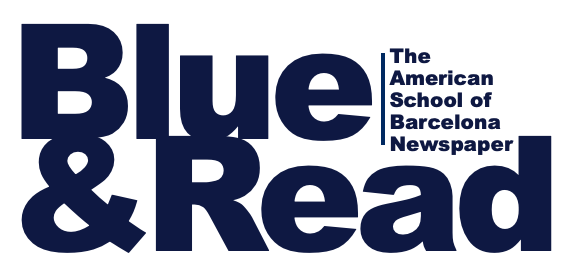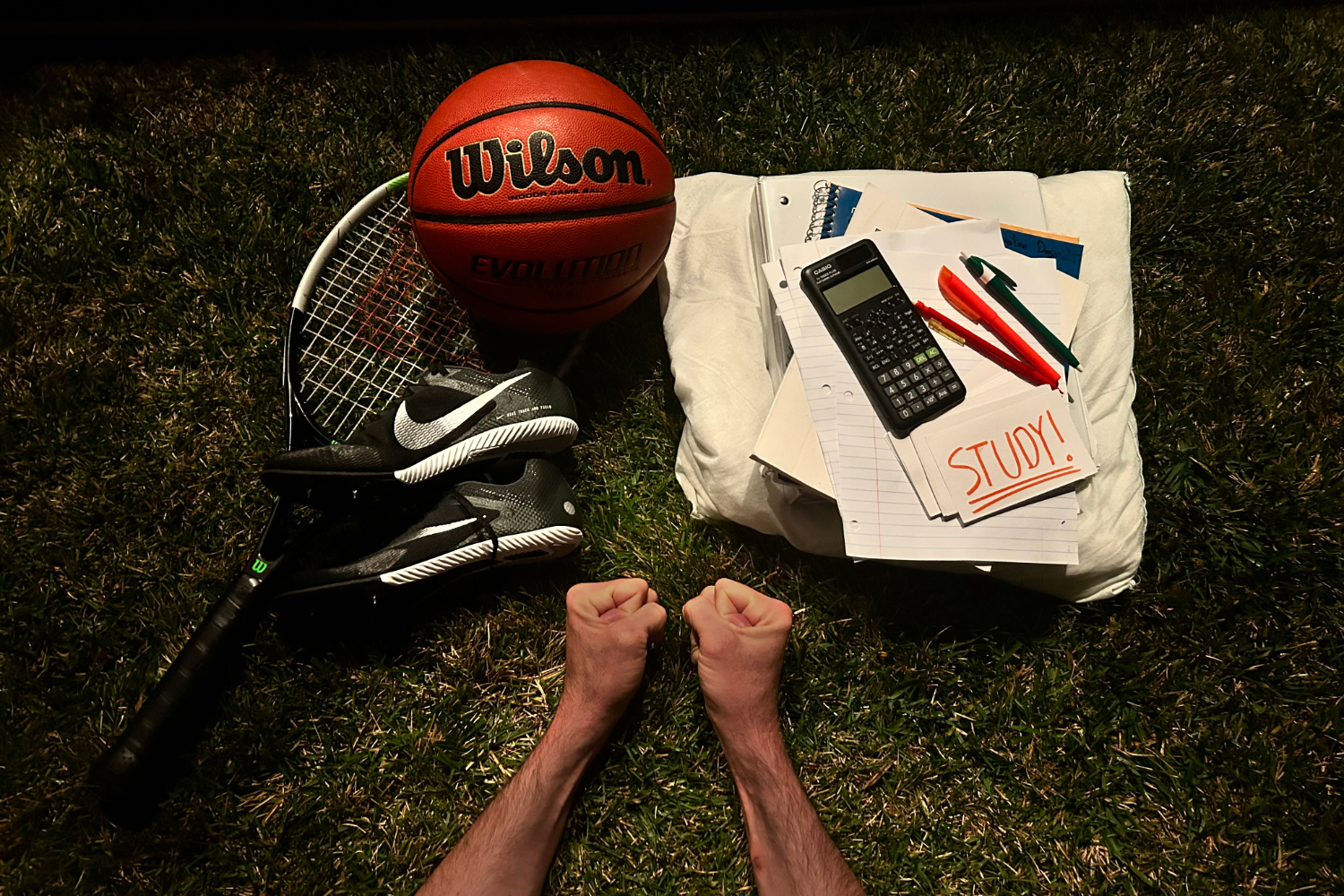Introduction:
Many students at ASB play a sport or regularly participate in some sort of physical exertion; we do it because we love it, and because it gives us purpose. As someone who spends the majority of my time playing a sport, I have inevitably taken away copious amounts of skills, lessons, and experience from it. But many student athletes are unaware that their knowledge can be, and already is, subconsciously applied far beyond the boundaries of the field, court, or pool. The mental strength and techniques one builds to perform at their best level in their sport can directly support their success in the classroom. If these athletes become aware of the specific skills that have direct correlations between positive outcomes in their sport and at school, and continue to develop those skills, they will likely see even better results on both ends.
Time Management:
As athletes, we are constantly trying to balance training, games, and recovery in order to maximize our performance when it matters most. What this balancing act looks like depends largely on the amount of time we have to focus on our sport, which is relative to our current workload in school. Dividing up our time resourcefully becomes incredibly important when juggling school and sports, but excelling at something takes a lot of time. In fact, Malcolm Gladwell, a well known Canadian author, journalist, and public speaker, wrote that the key to becoming world-class at something is practicing it for 10,000 hours. Although many of us are not looking to become Olympic athletes, we spend a great deal of time training – time which could be used elsewhere. Because of this, it’s important that we use our time as efficiently and productively as possible, because we likely have less time to spare. In the classroom, this might look like starting a project due in a week as soon as it’s assigned instead of procrastinating until the last minute; getting ahead on classwork; or designating time to catch up on work from when you missed a class.
Teamwork and Communication:
For those of us who play team sports, we are well aware that the connection between teammates is crucial if we want to get good results. That includes, firstly, leader positions or “captains”. The captain is the glue that holds the team together. They need to be able to motivate, encourage, and inspire others. We can apply this to school, because when we are working in group settings, oftentimes there is a person who takes a leadership position and organizes and directs other people so work can get done. If you are someone who considers yourself a leader on your team, applying the same tactics you use to support your teammates will be helpful in finding organization and success in group projects.
Secondly, accountability plays a key role in a successful team. As athletes, it’s important that we take accountability for our mistakes and disclose to teammates that we are both aware of our weaknesses and are working on them – this creates an environment of trust where it is known that everyone is trying to reach their maximum potential. Now, how many times have we heard the phrase “take accountability for your learning”? While this can look differently for everyone, it could involve asking teachers and friends to catch you up when you miss class, or making sure that you are paying attention in class and communicating to your teacher that you are concentrating on what they are saying. If you make a mistake on a test or answer a question wrong, it’s important to convey a message to your teachers that you are willing to learn from errors and improve so that when another opportunity comes, you are ready to demonstrate what you know.
Handling Pressure:
Additionally, and perhaps most importantly, athletes need to be able to deal with pressure. We constantly hold ourselves to the highest standard, feeling pressure from our teammates, coaches, parents, and even ourselves. Before a big game, when nerves are high, a predominant skill is being able to take a deep breath, calm your racing thoughts, and feel ready to step on the pitch, court, or rink. Any incredibly successful athlete has likely dedicated a large portion of training to strengthening their mind – because mental strength is crucial. When an athlete reaches a certain level, the physical game is less important because everyone is already excellent. The mental game is what separates the best from the best. I could write an extremely lengthy article just on the subject of using mental techniques to perform at your best. In fact, Stanford University published an article in 2024 interviewing sports psychologist Kelli Moran-Miller, mainly discussing how athletes handle stress. The article mentions applying techniques to non-athletes, which can look like “increasing our self-awareness and attentional control” and “breathwork and relaxation strategies” to help us control our stress.
Furthermore, I know that a lot of us at ASB care deeply about our grades, which is why we feel extremely stressed at times–which is a good thing, because it shows that we care. However, when summative assessments come around, a lot of us tend to get nervous, doubting our intelligence and readiness no matter how much we studied the night before. But Miller also mentioned that “It’s important to remember that our stress response is our brain’s way of readying us for action so that we can rise to a challenge.” If we can remember this before a test and put to use our visualization and positive affirmations that we already use in our sport, school will start to become less stressful. People who are not athletes can also work on these mental tactics to apply them to the classroom and to other areas of their lives.
Perseverance and Resilience:
Lastly, we know how important determination and persistence are in sports. According to a study done by John Hopkins Medicine, in the US alone, about 30 million children and teens participate in some form of team sports, and more than 1 million suffer sport-related injuries. For athletes, getting injured takes an enormous toll on one’s confidence and sense of self. Participating in a sport is a large part of an athlete’s identity, and when the ability to compete is taken away from them, they can become discouraged and unsure of the next step. But those who have recovered from a serious injury can tell you that when you are finally able to compete again, the struggle, hard work, patience, and discipline were all worth it. Students can apply this resilience to their academics after they receive a grade they weren’t happy with, or when they are struggling in a class. Although it is difficult to compare a serious injury to a bad score, being able to take the drive and perseverance one would use to recover can absolutely be applied to the cycle of acknowledging what you did wrong, improving it through repetition and practice, and performing better on the next big summative.
Additionally, it’s a known fact that sports are unpredictable. Unbelievable comebacks can happen. I’m sure many remember the 2022 World Cup Final when France managed to come back from 2-0 down and then from 3-2 down in the last minutes of added time, although Argentina won in penalties in the end. We know the importance of never giving up, of believing in the impossible when all hope seems lost. Translating that tough outer shell and the pure grit we develop from being athletes to the classroom can be incredibly helpful. If we are struggling with a concept, we have to make sure that we do whatever it takes to fully grasp it, whether that’s staying behind after class to receive individual instruction from teachers, or just going home and searching for a Youtube video that will explain it to you.
Bigger Picture:
All in all, we know that being an athlete is an incredibly important part of who we are. We spend immeasurable amounts of blood, sweat, and tears perfecting our craft. But it’s important to acknowledge that the things we learn throughout that journey can be applied to not only sports, but life in general. Whether that’s managing our time better, performing under pressure, persevering through challenges, or being a leader, all of these skills are crucial to becoming a well-rounded individual who finds success in everything they do.
However, all of this is not to say that one can’t learn these things without becoming an athlete. In fact these lessons are consistently needed in our daily lives, and are therefore grasped by many who don’t participate in sports. But, because athletes specifically need said skills in order to perform, they likely have jump starts on many people. Using that experience elsewhere would be an intelligent action, no?
Bibliography:
De Witte, Melissa. “‘Deep Breath, See the Ball, Trust’: How Pro Athletes Handle Stress.” Stanford Report, 25 July 2024, https://news.stanford.edu/stories/2024/07/deep-breath-see-the-ball-trust-how-pro-athletes-handle-stress. Accessed 7 Mar. 2025.
“Sports Injury Statistics.” Johns Hopkins Medicine, https://www.hopkinsmedicine.org/health/conditions-and-diseases/sports-injuries/sports-injury-statistics. Accessed 7 Mar. 2025.

